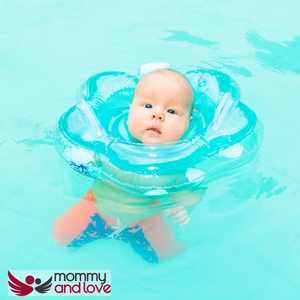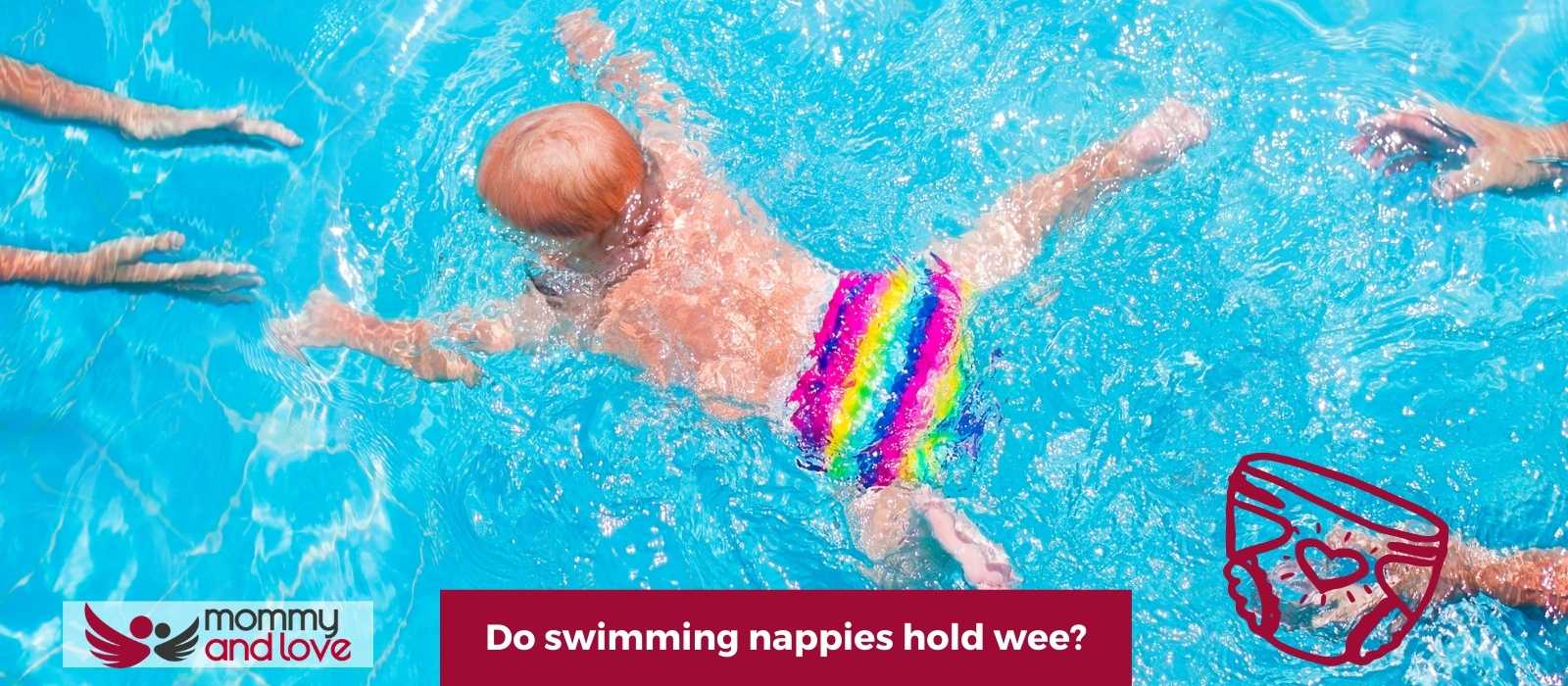Many parents ask themselves this question when they are packing for a swimming excursion. It’s important to know the answer to this question so you can get the most out of your swim time and not have to worry about any leaks or accidents. In this article, we will discuss how swimming nappies work, what makes them different from regular diapers, and if they hold wee…
But tldr; NO swimming nappies do not hold wee. Neither disposable nor reusable swimming nappies are meant to hold urine, if swim diaper hold urine it would weigh the child down considerably and be quite dangerous.
Your Guide to Swimming Nappies
There are many kinds of swimming nappies on the market. You can opt for a disposable swim diaper or a reusable swim diaper.
Disposable swim nappies look like regular diaper, but are worn only once and then thrown away.
Reusable swim diapers look like swimming costumes, and can be worn multiple times.
Does Poo Leak?
If you are using disposable swim diapers then yes, poo will probably leak out the sides. Many pools insist on a double diaper situation to try and help. Many people wear regular swimming costumes over the disposable diaper.
A reusable swim diaper has tight cuffs to contain any poop. You don’t normally need to wear anything else with them.
Swim nappies should fit snuggly at the waist and thighs, with an elastic band around your baby’s legs to keep them up. They’re designed so that you can wear them in pool or ocean waters without worrying about any red marks left behind!
Why You Should Consider Using Reusable Swim Nappies

Swim diapers are designed to be worn in water. Most disposable swim diapers contain chemicals that can irritate your baby’s skin or cause severe rashes.
Reusable swim nappies are easy to wash and dry, you simply hang them up until they’re dry enough to wear again.
How many swim nappies do I need?
For reusable swim diapers normally one pair is enough, unless you are on a beach holiday etc where you will be swimming more frequently. You will need to ensure the size is just right to prevent poop leakage.
For disposable swim diapers you will need one pair per swimming session (and actually probably two as most pools insist on double diapering).
Are swim nappies suitable for boys and girls?
Yes. They fit both.
How do I dispose of swim diapers?
You can dispose of disposable swim diapers in the same rubbish bin you would dispose of a regular diaper, but be sure to check your local laws and recycling procedures if you live somewhere that does not allow these items in landfill or composting facilities.
What are reusable swim nappies made from?
Reusable swim nappies, such as Bummis Swimmi and Swim Diapers , are made from a lightweight material that is quick-drying and easy to wash.
Usually a thick nylon or neopolines material is used to retail a secure but breathable fit around the ebaby.
Can my child wear a disposable diaper under a reusable diaper?
No! Please do not double diaper. Some people think it will help keep the disposable swim diapers from leaking, but most pools have specific rules about wearing these or they won’t let you in the pool with a child who is wearing a disposable nappy as a swim nappy.
How long does a swim nappy contain faeces?
Swim diapers are designed to hold in solid waste until it is convenient for you to change your baby. However, its vital that you change a dirty swim diaper asap. It is not intended to hold poop for long periods of time.
If your swim diaper leaks when swimming underwater please inform the pool management immediately.
What is the difference between a reusable and disposable swim nappy?
Reusable swim diapers look like regular cotton or nylon swimming costumes and can be worn multiple times. They hold in solid waste for a short period.
How do I clean and care for reusable swim nappies?
To get the most out of your reusable swim diapers, be sure to rinse them thoroughly after each use and wash in warm water with a neutral soap.
Why are swim nappies so important?
Swim diapers are needed because they are designed specifically for swimming conditions and do not leak like regular diapers.
How dangerous is poop in a pool?
Whilst swimming pools are disinfected with chlorine, bromine or ozone swallowing poop can be very dangerous for some people. Pools are maintained to ensure certain quality levels are met for swimmers.
What are the benefits of reusable swim diapers?

Reusable swim diapers will last longer than disposable ones, saving you money in the long run.
They also allow your child to swim without any irritation caused by chemicals or plastic pants that regular diapers would have.
How much do reusable swim diapers cost?
The cost of reusable swim nappies vary. The average price for a pair of good quality, well-fitting reusable swim nappies is around £10-£15.
How long do they last?
Reusable swim diapers can last for years if cared for properly and taken care of in between uses. They will last until your child outgrows that size!
What do I need to know before swimming?
Before you take your child swimming it is worthwhile finding out about the pool’s rules and regulations around swim diapers. Some pools have very strict rules, others are a lot more open to using reusable swim nappies as long as they are well-fitted and don’t leak.

This article was written by: Gian MIller – Full-Time Writer, Baby Whisperer & Dad of 3.
Gian spends a lot of his time writing. A self-proclaimed baby whisperer, Gian has been through it all with his own children and is passionate about sharing his hard-won wisdom with other parents. When he’s not writing or changing diapers, you can find him playing the guitar or watching baseball (or preferably both at the same time).




